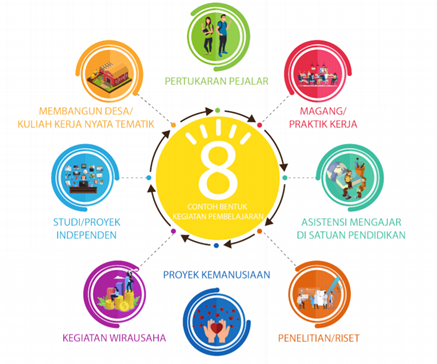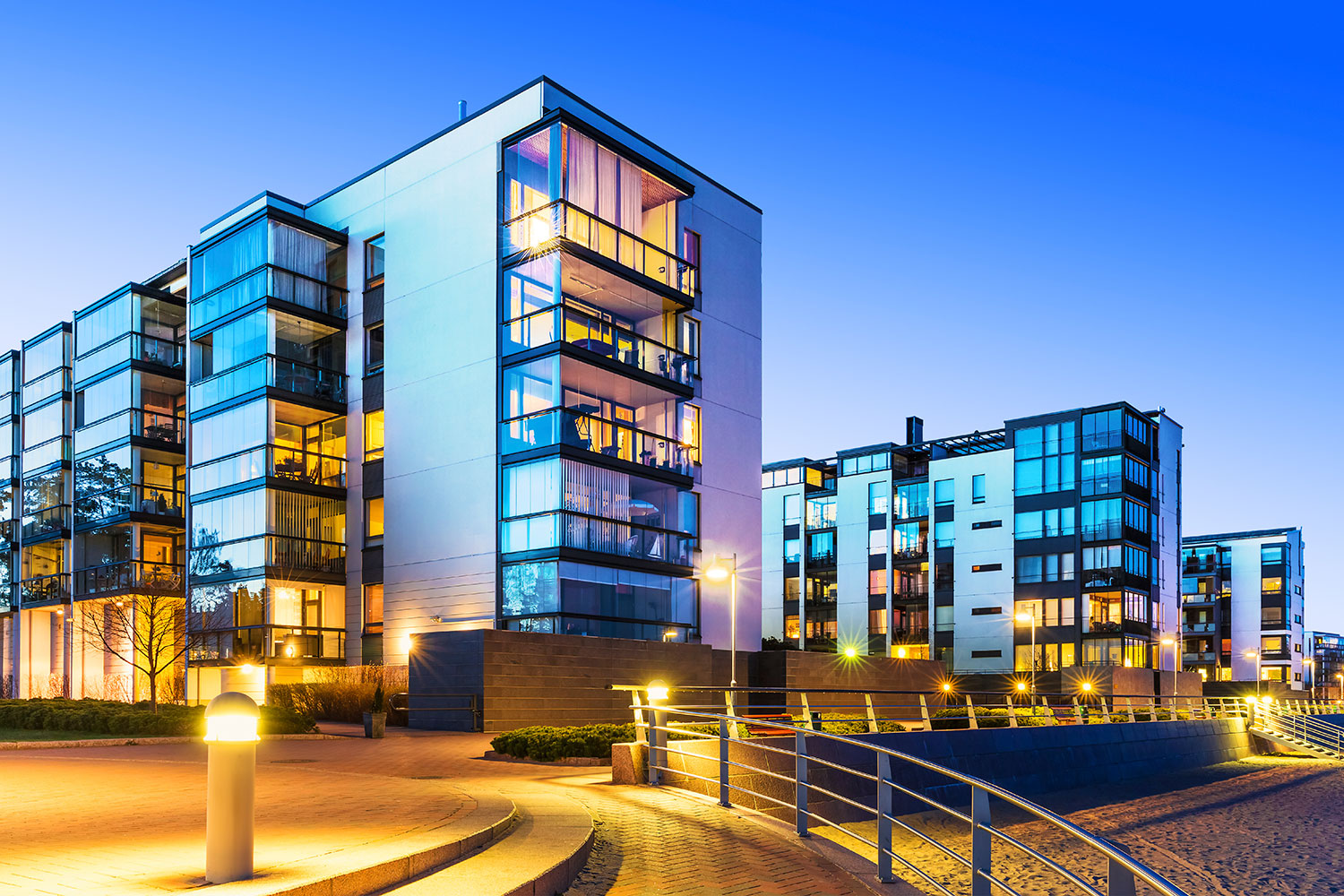
Journalism Bachelor Degree Study Program faculty of Social Science and Political Science Bengkulu University
Implementation of the MERDEKA LEARNING MERDEKA CAMPUS policy Permendikbud Number 3 of 2020 concerning National Higher Education Standards

A. STUDY PROGRAM IDENTITY
| College | : | Bengkulu University |
| Faculty | : | Faculty of Social Science and Political Science |
| Study program | : | S1 Journalism |
| Establishment decree number | : | 36348/A5.1/HK/2014 |
| Educational stage | : | Bachelor degree |
| Graduate Degree | : | Bachelor of Communication Science (S.Ikom) |
| PS Visi Vision | : | Become a competitive undergraduate journalism study program at the national and ASEAN levels in 2025 |
| PS . Mission | : | 1. Organizing the learning process in accordance with the needs of the community, the times and communication technology 2. Develop research in the field of journalism studies 3. Carry out community service according to the needs of the journalism field at the national and ASEAN levels 4. Build and create a harmonious academic atmosphere to achieve competitive Human Resources at the national and ASEAN levels 5. Organizing good study program governance 6. Improving and developing excellent academic programs as well as collaborating with the government, mass media, professional and community organizations at the national and ASEAN levels |
| Accreditation | : | B (Score 305) SK BAN PT No. 1824/SK/BAN-PT/Akred/S/V/2019 |
| Address | : | Jl. WR. Supratman Cage Lemonade Bengkulu City. Postal Code 38371.A |
| : | S1_jurnalistik@unib.ac.id | |
| Website | : | s1jurnalistik.fisip.unib.ac.id |
BACKGROUND OF CURRICULUM REVISION df
Merdeka Learning Campus Merdeka (MBKM) is one of the policies of the Minister of Education and Culture. MBKM is implemented in order to prepare students to face changes in social, cultural, world of work and rapid technological advances and are more attuned to the needs of the times. In addition, to be able to make students educated, innovative, independent and have strong characters based on locality and existing local wisdom. The implementation of MBKM must be in accordance with the objectives and targets of implementation, namely achieving learning outcomes that include aspects of attitudes, knowledge and skills in an optimal and relevant manner.
Based on Ministerial Regulation No. 3 of 2020 concerning National Higher Education standards, one of the Merdeka Campus policies is in the form of providing opportunities for students to be able to study for a maximum of 3 (three) semesters outside of their study program. In the form of 1 semester of opportunity to take courses outside the study program and 2 semesters of carrying out learning activities outside of tertiary institutions. Various forms of learning activities outside of tertiary institutions, including doing internships/work practices in industry or other workplaces, implementing community service projects in villages, teaching in educational units, participating in student exchanges, conducting research, conducting entrepreneurial activities, making studies/ independent projects, and following humanitarian programs. Through the mentoring process by lecturers, the MBKM program implemented is expected to provide field contextual experiences that will improve student competence as a whole, be ready to work, or create new jobs.
At the University level, the Independent Learning-Independent Campus policy is contained in the Rector’s Regulation No. 25 of 2020 concerning the Implementation of Academic Activities for the University of Bengkulu’s Vocational, Undergraduate, Professional and Postgraduate Education Programs. Article 7 mentions alternative courses, namely courses and learning processes that accommodate the Independent Learning-Independent Campus policy . The Independent Learning Policy-Independent Campus has become one of the indicators of higher education clustering, so Bengkulu University has made various efforts to encourage all study programs to implement this policy.
The S1 Journalism Study Program, which has a vision of “ becoming a competitive S1 journalism study program at the national and ASEAN levels in 2025” , seeks to follow up on MBKM rules by implementing policies through implementation programs. Based on the Guidebook for the Implementation of the Independent Learning Policy on an Independent Campus in the university environment, especially the Journalism Study Program, the curriculum is prepared to be implemented for the 2021/2022 class.
Curriculum changes in higher education are routine activities that must be carried out in response to the development of Science, Technology, and Arts ( scientific vision ), societal needs ( societal needs ), and the needs of graduate users ( stakeholder needs ). The preparation of this curriculum is the first step to standardize the application, or become a reference for the implementation of the MBKM program. So that later what the government policy is in accordance with the implementation at the University institution. In addition, for the S1 Journalism study program, which basically does require applied knowledge in theoretical applications, openly welcomes government regulations with transparent, systematic, and constructive implementation in accordance with the needs of the local and national regions.
CURRICULUM DESIGN FOUNDATION
Sociological Foundation
The three targets of the graduates of the S1 Journalism Study Program are based on the results of the study program tracer, namely to become professional media workers (journalists), creative workers who produce works in the form of writing, images, videos, sound, or their combination, and applied researchers in the field of journalism. The progress of information and communication technology is very rapid, requiring graduates of the S1 Journalism study program to move quickly and follow the flow of society’s digital needs. So that the previous conception of thinking was more at the conventional level, leading to a modern way of thinking, without losing the ideals in journalistic ethics and the appropriate theoretical implementation.
The S1 Journalism Study Program which requires a balance of theory and practice, seeks to form a blended learning to answer most of today’s needs. Several important local, national, and international studies that discuss media and journalism have emerged whose contents illustrate that the changing digital world shows that humans also need development both physically and non-physically in terms of work. Journalistic activities are no longer exclusively owned by journalists, to make news, one cannot only stand based on personal interests, but there is also a moral and ethical responsibility that must be maintained so that what is presented can bring social change in the system in society.
Globalization that appears along with the needs and advances in information technology, opens opportunities for journalism students to develop themselves not only at the local level, but also nationally and even internationally. The talents they have must adapt to market needs and are based on local conditions which require them to adhere to the study program’s vision and mission to be able to adapt to changes. In addition, industry demands also encourage students to be skilled in all forms of digitization, including making designs, short films, writing narratives well, and always being critical and skeptical. Of course, this capital is not a finished product that can be obtained in a short time. need cooperation with all elements, educational institutions, private sector, government and society to make this happen.
Legal Basis
- Law of the Republic of Indonesia Number 20 of 2003 concerning the National Education System (State Gazette of the Republic of Indonesia of 2003 Number 78, Supplement to the State Gazette of the Republic of Indonesia Number 4301);
- Law of the Republic of Indonesia Number 14 of 2005 concerning Teachers and Lecturers (State Gazette of the Republic of Indonesia of 2005 Number 157, Supplement to the State Gazette of the Republic of Indonesia Number 4586).
- Law of the Republic of Indonesia Number 12 of 2012 concerning Higher Education (State Gazette of the Republic of Indonesia of 2012 Number 158, Supplement to the State Gazette of the Republic of Indonesia Number 5336);
- Law Number 6 of 2014, concerning Villages.
- Government Regulation Number 04 of 2014, concerning the Implementation of Higher Education and Management of Higher Education.
- Presidential Regulation of the Republic of Indonesia Number 8 of 2012 concerning the Indonesian National Qualifications Framework (State Gazette of the Republic of Indonesia of 2012 Number 24);
- Regulation of the Minister of Education and Culture Number 73 of 2013 concerning the Application of the Indonesian National Qualifications Framework for Higher Education (State Gazette of the Republic of Indonesia of 2013 Number 31);
- Regulation of the Minister of Research, Technology and Higher Education of the Republic of Indonesia Number 62 of 2016 concerning the Higher Education Quality Assurance System;
- Regulation of the Minister of Research, Technology and Higher Education Number 15 of 2017 concerning Naming Study Programs in Higher Education (State Gazette of the Republic of Indonesia of 2017 Number 124);
- Regulation of the Minister of Research, Technology and Higher Education Number 59 of 2018, concerning Diplomas, Certificates of Competence, Professional Certificates, Degrees and Procedures for Writing Degrees in Higher Education;
- Decree of the Minister of Research, Technology and Higher Education No. 123 of 2019 concerning Internships and Recognition of Industrial Internship Semester Credit Units for Applied Undergraduate and Undergraduate Programs.
- Minister of Education and Culture Regulation Number 3 of 2020 concerning National Higher Education Standards.
- Regulation of the Minister of Education and Culture No. 5 of 2020, concerning Accreditation of Study Programs and Universities
- Regulation of the Minister of Education and Culture No. 7 of 2020 concerning the Establishment of Changes, the Dissolution of State Universities, and the Establishment, Amendment, Revocation of Permits for Private Universities.
- Regulation of the Minister of Education and Culture No. 22 of 2020, concerning the Strategic Plan of the Ministry of Education and Culture .
- Decree of the Chancellor of the University of Bengkulu Number 1944/UN30/HK/2017 concerning the Naming of Study Programs and Writing Degrees for Graduates of the Vocational Education Program, Academic Education, and Professional Education Surrounding the University of Bengkulu .
- Regulation of the Chancellor of the University of Bengkulu Number 25 of 20 20 concerning the Implementation of Academic Activities for the Vocational, Undergraduate, Professional and Postgraduate Education Programs of the University of Bengkulu .
- Decree of the Chancellor of the University of Bengkulu Number 3521/U N 30/H K /2020 concerning Guidelines for the Implementation of the Free Learning Policy – Bengkulu University Merdeka Campus
DEVELOPMENT PROCESS
The process of curriculum revision to implement the policy of the Independent Learning Curriculum – Merdeka Campus is carried out through several processes, as follows.
- Studying documents related to the policy of the Independent Learning Curriculum – Merdeka Campus.
- Reviewing the curriculum that is being implemented in the current study program
- Participate in socialization/seminars/ workshops related to the implementation of the Merdeka Learning – Merdeka Campus policy , whether organized by Bengkulu University for internal groups, from external campuses in Indonesia, or the Ministry of Education and Culture which is national .
- Participate in meetings, discussions and meetings both virtual and face-to-face with ASPIKOM, ISKI, and/or professional lecturers who have started implementing the MBKM program on their respective campuses.
- Conducting FGD with S1 Journalism lecturers and other lecturers who teach courses in S1 Journalism.
- Reviewing the curriculum that is being implemented in the Study Program that is still using the 2018 curriculum based on the KKNI.
- Revised the 2020 Curriculum draft through a series of workshops organized by the Bengkulu University LPMPP .
- Exploring opportunities for collaboration with various partner institutions, both at the university level, as well as state and private companies (especially in the Bengkulu local area) related to journalistic learning for the implementation of the Merdeka Learning – Merdeka Campus policy .
VISION , MISSION, OBJECTIVES AND UNIVERSITY VALUE IN IMPLEMENTING THE STUDY PROGRAM
The S1 Journalism Study Program is a strata 1 (S1) education level aimed at obtaining a Bachelor’s degree as an educational degree, with the graduate academic degree being S. I.Kom (Bachelor of Communication Studies). Program The S1 Journalism Study at the University of Bengkulu has a vision of becoming a competitive S1 Journalism Study Program at the national and ASEAN levels in 2025.
This vision is then translated into the contents of the study program implementation as follows:
- Organizing the learning process in accordance with the needs of the community, the times and communication technology
- Develop research in the field of journalism studies
- Carry out community service according to the needs of the journalism field at the national and ASEAN levels
- Build and create a harmonious academic atmosphere to achieve competitive Human Resources at the national and ASEAN levels
- Organizing good study program governance
- Improving and developing excellent academic programs as well as collaborating with the government, mass media, professional and community organizations at the national and ASEAN levels
The implementation of the S1 Journalism Study Program at the University of Bengkulu has the following objectives:
- The creation of students who are able to compete at the national and ASEA levels
- Increasing the quality of relevant learning programs following the times, communication technology and according to the needs of stakeholders
- Increasing the quantity and quality of national and ASEAN-oriented research and publications
- Increasing the quantity and quality of community service in accordance with the national and ASEAN-oriented communication science field
- Creating a conducive academic climate between lecturers and students
- Increased student involvement in research and lecturer service
- Increasing the culture of scientific activities, research and publications for the academic community
- The implementation of good study program management
- Increased Institutional Networking or partnerships and cooperation for the development of the Tri Dharma of Higher Education
- Increased absorption of graduates by stakeholders
In carrying out the educational process in accordance with the vision and mission that has been set, university values are also formulated which unite the hearts of all elements of education in realizing the university’s vision and mission, as well as the basis for giving direction to the attitudes and behavior of the entire academic community . in carrying out its main duties and functions. These values include input values, process values, and output values.
Input values are values that are needed in every student, lecturer and employee of the University in order to achieve excellence, which include: 1) Trust , have integrity, be honest, and be able to carry trust; 2) Professional , have adequate knowledge and ability and understand how to implement it; 3) Enthusiastic and highly motivated, showing curiosity, dedicated spirit and result oriented; 4) Be responsible , understand the risks of work and be committed to being responsible for the results of their work; 5) Creative, have a varied mindset, perspective and approach to every problem; 6) Discipline , obeying the existing rules and regulations and being able to invite others to behave the same way; 7) Caring , aware and willing to understand and pay attention to the needs and interests of other parties.
Process values , namely values that must be considered in working at Bengkulu University in achieving and maintaining the desired conditions, include: 1 ) Visionary and insightful , namely working based on extensive knowledge and information as well as far-sighted insight; 2) Be a role model , that is, take the initiative to start from yourself to do good things so that you become an example for others; 3) Motivating , namely providing encouragement and enthusiasm for other parties to try to achieve common goals; 4) Inspiring , namely providing inspiration and encouragement so that other parties are moved to produce their best work; 5) Empowering , namely providing opportunities and optimizing the business power of other parties according to their abilities; 6) Cultivating , namely being a motor and driving force in community development towards a more cultured condition; 7) Obey the principles , comply with the rules, work procedures and laws and regulations; 8) Coordinate and synergize within a team framework, namely working together based on commitment, trust, openness, mutual respect, and active participation in the interests of the university; 9) Accountable , namely working in a measurable manner with standard principles and providing accountable work results.
Output values , namely values that are considered by stakeholders, which include: 1) Productive (effective and efficient) , namely providing good work results in optimal quantities through effective and efficient work implementation; 2) Passionate about high quality , that is to produce and provide only the best; 3) Can be trusted (reliable) , namely the ability to carry trust and provide evidence in the form of work results in an effort to achieve the vision and mission of the University; 4) Responsive and aspirational , namely sensitive and able to immediately follow up on ever-changing demands; 5) Anticipatory and innovative, namely being able to predict and respond to changes that will occur, as well as new ideas and developments; 6) Democratic, fair and inclusive, which is open to criticism and input and able to act fairly and evenly; 7) Lifelong learning, namely wanting and trying to always add and broaden insight, knowledge and experience.
GRADUATE PROFILE
Referring to the Indonesian National Qualifications Framework, the specifications for S1 Journalism graduates are at level 6 or categorized as technicians/analysts. Referring to the ASPIKOM Graduate Profile Achievement directory book (Communication Study Program Association) and also based on the tracer study process carried out at the internal level, the profile of S1 Journalism graduates is divided into three parts, namely as journalists, content creators, and Media Research Assistants.
-
JournalistMedia workers who master the techniques of covering, writing and editing news according to the type of media used
Competence :
- Mastering the techniques of writing news, features and opinions for various media, platforms and channels
- Able to conduct interviews according to journalistic rules
- Able to dig up information through interviews, desk studies and observations
- Able to edit news
-
Content CreatorCreative workers who produce various materials in the form of writing, images, videos, sound or a combination of them, which are then shared online
Competence :
- Mastering the techniques of writing news, features and opinions for various media, platforms and channels
- Mastering cameras, videos and equipment and how to operate them
- Able to do photo and video editing
-
Media Research AssistantImplementing applied research in the field of journalism
Competence :
- Mastering research methods
- Mastering communication theory/journalism
- Mastering journalistic issues
GRADUATE LEARNING ACHIEVEMENTS
In the KKNI-based curriculum structure, learning outcomes are formulated into four aspects, which includes attitudes, knowledge, general skills and special skills.
The formulation of the achievements of the four aspects is described as follows.
Attitude Aspect
- Fear of God Almighty and able to show a religious attitude ;
- Upholding human values in carrying out duties based on religion, morals, and ethics ;
- Internalize academic values, norms, and ethics;
- To act as citizens who are proud and love their homeland, have nationalism and a sense of responsibility to the state and nation;
- Appreciate the diversity of cultures, views, religions, and beliefs, as well as the opinions or original findings of others;
- Contribute to improving the quality of life in society, nation, state, and the progress of civilization based on Pancasila;
- Cooperate and have social sensitivity and concern for society and the environment;
- Obey the law and discipline in the life of society and the state;
- Internalize the spirit of independence, struggle, and entrepreneurship;
- Demonstrate a responsible attitude towards work in their area of expertise independently.
Knowledge aspect
- Mastering the theoretical concepts of journalism, communication;
- Mastering the principles of social, cultural, legal, economic and political systems, especially in the national context, ethics, regulations, and journalistic standards;
- Mastering journalistic product writing techniques, and journalistic research methods.
- Mastering journalistic ethics and human values (humanity values) ;
- Mastering the rules, principles and techniques of cross-functional communication, organizational level, and culture;
- Mastering the latest principles and issues in economics, politics, social, ecology, the latest and most recent technological developments in general ;
- Mastering knowledge of communication techniques using the latest and latest technology .
General Skill Aspect
- Applying logical, critical, systematic, and innovative thinking in the context of the development or implementation of science and/or technology in accordance with their field of expertise;
- Reviewing the implications of developing or implementing science, technology or art in accordance with their expertise based on scientific principles, procedures and ethics to produce solutions, ideas, designs, or art criticism and compiling a scientific description of the results of the study in the form of a thesis or final project report;
- Make the right decisions in the context of solving problems in their area of expertise, based on the results of analysis of information and data;
- Manage learning independently;
- Develop and maintain a network with supervisors, colleagues, peers both inside and outside the institution.
Special Skill Aspect
- Able to produce journalistic products that reflect good news judgment, appropriate sources, accuracy and completeness, meet technical competence and comply with ethics, rules, and writing standards ( style guidelines );
- Able to analyze the influence of history, economy, politics, law or government regulations on the climate of journalism and freedom of speech;
- Able to write, edit, design and produce news in various types and contexts which are channeled through mass media based on mass communication theory and journalistic practice principles;
- Able to interview news sources exploratively, and can use communication, information and photography technology to optimize journalistic practice;
- Able to carry out persuasion and interpersonal communication in establishing relationships with news sources.
CURRICULUM STRUCTURE
The total credits that must be completed by undergraduate students of Journalism FISIP Bengkulu University is a minimum of 14 4 credits. This is in line with Permendikbud number 3/2020 which states that the minimum study load for S1/D4 students is 144 credits . The categories of courses are as follows.
| No. | Course Group | MK Group Code | Number of Credits |
|---|---|---|---|
| 1 | University | CoursesMKU | 21 |
| 2 | Faculty | CoursesISP | 15 |
| 3 | Study | Program Compulsory CoursesJUR | 110 |
| 4 | Elective | courses Study programJUP | 12 |
| Total Credits | 158 | ||
The details of the four course categories are as follows.
1. University Compulsory Courses (MKU)
| No | Code | Subject | credits |
|---|---|---|---|
| 1 | MKU-101 | Pancasila | 2 (2-0) |
| 2 | MKU-102 | Religious education | 3 (3-0) |
| 3 | MKU-103 | Indonesian | 3 (1-2) |
| 4 | MKU-104 | Civic education | 2 (2-0) |
| 5 | MKU-105 | English | 2 (1-1) |
| 6 | MKU-106 | Computers and Programming ( Coding ) | 3 (1-2) |
| 7 | MKU-300 | Entrepreneurship | 2 (1-1) |
| 8 | MKU-400 | Community Service Program | 4 (0-4) |
| Amount 21 | (7-14) | ||
2. Faculty Compulsory Courses (MFD)
| No | Code | Subject | credits |
|---|---|---|---|
| 1 | ISP-100 | Introduction to Sociology | 3 (3-0) |
| 2 | ISP-101 | Introduction to Political Science | 3 (3-0) |
| 3 | ISP-102 | Introduction to Anthropology | 3 (3-0) |
| 4 | ISP-108 | Introduction to Social Statistics | 3 (3-0) |
| 5 | ISP-143 | Social Research Methods | 3 (3-0) |
| Amount 15 | (15-0) | ||
3. Program Compulsory Courses
| No | Code | Subject | credits |
| 1 | JUR-202 | Introduction to Communication | 3 (3-0) |
| 2 | JUR-201 | Journalism Fundamentals | 3 (3-0) |
| 3 | JUR-206 | History and Development of the Press | 2 (2-0) |
| 4 | JUR-205 | Indonesian Journalism | 3 (1-2) |
| 5 | JUR-225 | Ethics and Philosophy of Communication | 2 (2-0) |
| 6 | JUR-213 | Interview and Reporting Techniques | 3 (1-2) |
| 7 | JUR-134 | Photography Basics | 3 (1-2) |
| 8 | JUR-110 | Mass communication | 2 (2-0) |
| 9 | JUR-103 | Communication Theory | 3 (3-0) |
| 10 | JUR-119 | Mass Media Management | 3 (3-0) |
| 11 | JUR-118 | Media Political Economy | 3 (3-0) |
| 12 | JUR-126 | Press Ethics and Law | 3 (3-0) |
| 13 | JUR-107 | Procurement of News Materials | 3 (1-2) |
| 14 | JUR-214 | Radio Journalism | 3 (1-2) |
| 15 | JUR-215 | Television Journalism | 3 (1-2) |
| 16 | JUR-232 | Communication Technology Development | 2 (2-0) |
| 17 | JUR-231 | Graphic design | 3 (1-2) |
| 18 | JUR-208 | MBKM-News Writing | 3 (1-2) |
| 19 | JUR-235 | MBKM-Digital Work and Creativepreneur | 3 (1-2) |
| 20 | JUR-211 | MBKM-Article and Feature Writing | 3 (1-2) |
| 21 | JUR-224 | English for Journalism | 3 (1-2) |
| 22 | JUR-140 | MBKM-Qualifying Research Method | 3 (1-2) |
| 23 | JUR-112 | MBKM-Journalism of Culture and Tourism | 3 (1-2) |
| 24 | JUR-109 | MBKM-News Selection and Editing | 3 (1-2) |
| 25 | JUR-121 | MBKM-Photo Journalism | 3 (1-2) |
| 26 | JUR-122 | MBKM-Journalism Gender | 3 (1-2) |
| 27 | JUR-139 | MBKM-Videography | 3 (1-2) |
| 28 | JUR-241 | MBKM-Quantitative Research Method | 3 (1-2) |
| 29 | JUR-216 | MBKM-Print Media Journalism | 3 (1-2) |
| 30 | JUR-220 | MBKM-Digital Journalism | 3 (1-2) |
| 31 | JUR-233 | MBKM-Documentary Film and Short Film Production | 3 (1-2) |
| 32 | JUR-223 | MBKM-Journalism of Environment and Disaster | 3 (1-2) |
| 33 | JUR-144 | MBKM-Field Work/Internship Practice | 4 (0-4) |
| 34 | JUR-145 | MBKM-Thesis | 6 (0-6) |
| 35 | JUR-246 | Comprehensive examination | 2 (2-0) |
| 36 | JUR-247 | MBKM-Thesis | 6 (0-6) |
| Amount 110 | (48-62) | ||
4. Study Program Elective Courses
Elective courses are offered to students who have entered the 3rd year of study . Each student can take elective courses offered by the Study Program, which are selected based on consideration of the interests and needs of the student concerned.
4.A. MK Options that can be taken in the Study Program
| No | Code | Course Name | credits |
|---|---|---|---|
| 1 | JUP -104 | Public Relations Writing | 3 (1-2) |
| 2 | JUP -130 | Investigative Journalism | 3 (1-2) |
| 3 | JUP -242 | Critical Discourse Analysis and Semiotics | 3 (1-2) |
| 4 | JUP-217 | Brand Journalism | 3 (1-2) |
| Amount 12 | (4-8) | ||
4.B. MK Options that can be taken in other study programs around UNIB
In addition to choosing the optional MK offered by the S1 KS Study Program, students are also allowed to choose the MK in other study programs around Bengkulu University. For selected MKs taken in other Study Programs around the University of Bengkulu, it must be aligned with the profile and learning outcomes of graduates that have been determined by the S1 Journalism Study Program. In connection with this, the procedure must be discussed and approved by the Academic supervisor and the Head of the Study Program.
DISTRIBUTION OF COURSES PER SEMESTER
Semester I : 21 (21-0) Credits
| NO | MK CODE | SUBJECT | credits |
|---|---|---|---|
| 1 | MKU-105 | English | 2 (1-1) |
| 2 | MKU-102 | Religious education | 3 (3-0) |
| 3 | ISP-100 | Introduction to Sociology | 3 (3-0) |
| 4 | MKU-101 | Pancasila | 2 (2-0) |
| 5 | MKU-103 | Indonesian | 3 (3-0) |
| 6 | ISP-101 | Introduction to Political Science | 3 (3-0) |
| 7 | MKU-104 | Civic education | 2 (2-0) |
| 8 | MKU-106 | Computers and Programming ( Coding ) | 3 (1-2) |
| Number of Credits | 21 (18-3) | ||
Semester II : 22 (19-3) Credits
| NO | MK CODE | SUBJECT | credits |
|---|---|---|---|
| 1 | ISP-102 | Introduction to Anthropology | 3 (3-0) |
| 2 | ISP-108 | Introduction to Social Statistics | 3 (3-0) |
| 3 | JUR-202 | Introduction to Communication | 3 (3-0) |
| 3 | JUR-201 | Journalism Fundamentals | 3 (3-0) |
| 4 | JUR-206 | History and Development of the Press | 2 (2-0) |
| 5 | JUR-205 | Indonesian Journalism | 3 (1-2) |
| 6 | JUR-225 | Ethics and Philosophy of Communication | 2 (2-0) |
| 7 | JUR-213 | Interview and Reporting Techniques | 3 (1-2) |
| Number of Credits | 22 (18-4) | ||
Semester III : 23 (16-6) SKS
| NO | MK CODE | SUBJECT | credits |
|---|---|---|---|
| 1 | JUR-134 | Photography Basics | 3 (1-2) |
| 2 | JUR-110 | Mass communication | 2 (2-0) |
| 3 | JUR-103 | Communication Theory | 3 (3-0) |
| 4 | JUR-119 | Mass Media Management | 3 (3-0) |
| 5 | JUR-118 | Media Political Economy | 3 (3-0) |
| 6 | JUR-126 | Press Ethics and Law | 3 (3-0) |
| 7 | JUR-107 | Procurement of News Materials | 3 (1-2) |
| 8 | ISP-200 | Social Research Methods | 3 (3-0) |
| Number of Credits | 23 (19-4) | ||
Semester IV : 23 (9-14) Credits
| NO | MK CODE | SUBJECT | credits |
|---|---|---|---|
| 1 | JUR-214 | Radio Journalism | 3 (1-2) |
| 2 | JUR-215 | Television Journalism | 3 (1-2) |
| 3 | JUR-232 | Communication Technology Development | 2 (2-0) |
| 4 | JUR-231 | Graphic design | 3 (1-2) |
| 5 | JUR-208 | MBKM-News Writing | 3 (1-2) |
| 6 | JUR-235 | MBKM-Digital Work and Creativepreneur | 3 (1-2) |
| 7 | JUR-211 | MBKM-Article and Feature Writing | 3 (1-2) |
| 8 | JUR-224 | English for Journalism | 3 (1-2) |
| Number of Credits | 23 (9-14) |
SEMESTER V : 18 (6-12) Credits
| NO | MK CODE | SUBJECT | credits |
|---|---|---|---|
| 1 | JUR-140 | MBKM-Qualifying Research Method | 3 (1-2) |
| 2 | JUR-112 | MBKM-Journalism of Culture and Tourism | 3 (1-2) |
| 3 | JUR-109 | MBKM-News Selection and Editing | 3 (1-2) |
| 4 | JUR-121 | MBKM-Photo Journalism | 3 (1-2) |
| 5 | JUR-122 | MBKM-Journalism Gender | 3 (1-2) |
| 6 | JUR-139 | MBKM-Videography | 3 (1-2) |
| Number of Credits | 18 (6-12) | ||
Semester VI : 18 (6-12) Credits
| NO | MK CODE | SUBJECT | credits |
|---|---|---|---|
| 1 | JUR-241 | MBKM-Quantitative Research Method | 3 (1-2) |
| 2 | JUR-216 | MBKM-Print Media Journalism | 3 (1-2) |
| 3 | JUR-220 | MBKM-Digital Journalism | 3 (1-2) |
| 4 | JUR-233 | MBKM-Documentary Film and Short Film Production | 3 (1-2) |
| 5 | JUR-223 | MBKM-Journalism of Environment and Disaster | 3 (1-2) |
| 6 | MKU-300 | MBKM-Entrepreneurship | 2 (1-1) |
| Number of Credits | 17 (6-11) | ||
Semester VII : 14 (0-14) SKS
| NO | MK CODE | SUBJECT | credits |
|---|---|---|---|
| 1 | JUR-144 | MBKM-Field Work Practice/Internship | 4 (0-4) |
| 2 | MKU-400 | MBKM-KKN | 4 (0-4) |
| 3 | JUR-145 | MBKM-Thesis | 6 (0-6) |
| Number of Credits | 14(0-14) | ||
Semester VIII : 8 (2-6) SKS
| NO | MK CODE | SUBJECT | credits |
|---|---|---|---|
| 1 | JUR-246 | Comprehensive examination | 2 (2-0) |
| 2 | JUR-247 | MBKM-Thesis | 6 (0-6) |
| Number of Credits | 8 (2-6) | ||
The following is the offer of elective courses in the Study Program based on odd and even semesters.
1. MK Options offered by Study Programs in Odd Semesters
| NO | MK CODE | SUBJECT | credits |
|---|---|---|---|
| 1 | JUP-104 | Public Relations Writing | 3 (1-2) |
| 2 | JUP-130 | Investigative Journalism | 3 (1-2) |
| Number of Credits | 6 (2-4) | ||
2. Optional MK offered by Study Programs in Even Semesters
| NO | MK CODE | SUBJECT | credits |
|---|---|---|---|
| 1 | JUP-242 | Critical Discourse Analysis and Semiotics | 3 (1-2) |
| 2 | JUP-217 | Brand Journalism | 3 (1-2) |
| Number of Credits | 6 (2-4) | ||
LEARNING SYSTEM
The learning process takes place in various forms of interaction between lecturers, students and learning resources. The learning process is carried out referring to the Semester Learning Plan (RPS). The learning methods applied are as follows:
-
Face-to-face lectures
Lectures are carried out using the lecture method, question and answer and discussion accompanied by presentation of material through presentation slides, learning videos, case sheets and others.
-
Online courses (online)
Online lectures utilize a learning management system, namely e-learning.unib.ac.id, virtual meetings (ZOOM and googlemeet), conversation applications (whatsapp and telegram) and electronic mail (email).
-
Group Discussion
Group discussions are carried out by applying the lecturer as a facilitator or resource person so that it demands students to be more active. The learning case method is also a reference to invite students to think critically.
-
Structured Assignments
Assignments can be given in groups or individually.
-
Practice
Like practicum in social sciences, practice can be in the form of simulations in lecture classes, practices in social environments and practices in laboratories (radio, television, multimedia and photography).
EVALUATION
As part of the learning process, the assessment of student learning outcomes is a form of fulfillment of graduate learning outcomes. The assessment standard as stated in Permendikbud No. 3 of 2020 concerning National Standards for Higher Education and the Chancellor's Regulation No. 25 of 2020 concerning the implementation of vocational, undergraduate, professional, and postgraduate education at the University of Bengkulu.
Assessment can be done through several techniques including observation, participation, performance, written tests, oral tests, and questionnaires. The assessment instrument adjusts to the rubric and/or results assessment in the form of a portfolio or design work. Attitude assessment is carried out using observational assessment techniques. Meanwhile, the assessment of mastery of knowledge, general skills, and special skills can be carried out using various techniques and assessment instruments. So that the final score is an integration between various techniques and assessment instruments used.
The assessment can be carried out by : a) the supervisor or a team of lecturers ; b) teaching lecturers or a team of lecturers by involving students ; and/or c) supporting lecturer or team of lecturers by involving relevant stakeholders. This depends on the needs in the course. The assessment is reported in the form of a measure of learning achievement which is expressed through quality letters. Reporting learning outcomes in the form of quality letters is a reflection of the range of values 0-4 with the following provisions.
| Value | Range Score | Quality Letters |
|---|---|---|
| 85 - 100 | 4.00 | A |
| 80 - 84 | 3.75 | A - |
| 75 - 79 | 3.50 | B+ |
| 70 - 74 | 3.00 | B |
| 65 - 69 | 2.75 | B - |
| 60 - 64 | 2.50 | C+ |
| 55 - 59 | 2.00 | C |
| 45 - 54 | 1.00 | D |
| 0 - 44 | 0 | E |
IMPLEMENTATION PLAN OF THE INDEPENDENT LEARNING POLICY- MERDEKA CAMPUS (MBKM) IN S1 SOCIAL WELFARE STUDY PROGRAM
One of the focuses of the MBKM policy is the granting of students' rights to take learning activities outside the study program for a maximum of 3 (three) semesters. This policy is the embodiment of Permendikbud Number 3 of 2020 concerning National Standards for Higher Education , in Article 18 it is stated that the fulfillment of the learning period and burden for undergraduate or applied undergraduate students can be carried out through: (1) following the entire learning process in study programs at universities according to the time and learning load; and (2) following the learning process in the study program to fulfill part of the time and learning load and the rest following the learning process outside the study program .
The right to learn in learning programs outside the study program refers to the following principles.
- Oriented to the fulfillment of Graduate Learning Outcomes (CPL) in the Journalism S1 Study Program.
- Students who take learning outside the study program can be given to students who have entered the fifth semester, or have passed as much as 87 credits. This amount is the total number of credits in semester 1 to semester 4, which includes university and/or faculty content courses and major competency courses for the S1 Journalism study program .
- Alternative learning outside the study program is prioritized for partners who already have a memorandum of understanding of cooperation or cooperation agreement with Bengkulu University .
- For students, the opportunity to study outside this study program is a right so that students may or may not use it.
- For Study Programs, it is an obligation to facilitate the implementation of the Independent Learning policy - Merdeka Campus .
Learning outside the study program is prioritized for partners who already have a memorandum of understanding or cooperation agreement with Bengkulu University , including: 1) other study programs around Bengkulu University; 2) Similar Study Programs within the scope of the Association; 3) Partners of non-University institutions/organizations.
There are 8 (eight) choices of alternative forms of learning outside the Study Program, namely: 1 ) . Student Exchange, 2). Internship/Work Practice, 3). Teaching Assistance in Education Units, 4). Research/Research, 5) . Humanitarian Project, 6) . Entrepreneurial Activities, 7) . Independent Study/Project, and 8) . Building a Thematic Real Work Village/Lecture (KKN Thematic). These 8 alternatives can be chosen according to the learning outcomes of graduates that have been determined by the Study Program.
Of the eight alternatives, the Journalism S1 study program prepares alternative programs as follows: 1). Internship/Work Practice, 2) . Teaching Assistance in Education Units, 3) . Research/Research, 4) . Humanitarian Project, 5) . Entrepreneurship Activities, and 6) . Building a Thematic Real Work Village/Lecture (KKN Thematic).
-
Internship/Work Practice
Hands-on learning in the workplace , such as a non-profit foundation, multilateral organization, or government institution . This learning will provide experiential learning for students to the world of work that is in line with the scientific study that is being practiced. During the internship/work practice, students will be guided by a supervisor from the Study Program and a field supervisor from a partner institution . The expected output is a report on internship activities and the value of the evaluation results.
-
Teaching Assistance in Education Units,
Students who have an interest in teaching as well as participate in increasing equity and the quality of education in Indonesia are given to participate in teaching assistance programs, one of which is the Teaching Campus program organized by the Higher Education. Learning activities in the form of teaching assistance are carried out by students in educational units such as elementary, middle, and high schools. Schools where teaching practice can be located in urban or remote areas, including in Bengkulu City.
-
Research/Research,
Provide opportunities for students who have a passion for research. Through Research/Research learning activities students will gain experience in applying the scientific method. In addition, students will also be able to develop critical and innovative scientific reasoning as a basis for further development in scientific applications. This activity can be carried out at research institutions such as LIPI/BRIN, LAPAN, NASA, universities, research and study centers (including those on the Bengkulu University campus), and others.
-
Humanitarian Project,
Students can develop the human spirit and apply the knowledge, values and skills of journalism science studies through real actions of humanitarian work. This activity can be carried out at foundations or humanitarian organizations that have been approved by the Study Program , both at home and abroad. Students can also apply for involvement in Humanitarian Projects initiated by both government and non-government to address certain situations, such as natural disasters, or special programs such as community organizing and development in certain communities.
-
Entrepreneurial Activities,
Facilitating students who have talent or passion in developing an entrepreneurial spirit. This development activity can be carried out independently or parent to another business activity. This entrepreneurial activity development plan is evidenced by an explanation or proposal for entrepreneurial activities and the process can be shown through proof of consumer transactions or employee salary slips or other relevant evidence as characteristics of entrepreneurship.
-
Building a Thematic Real Work Village/Lecture (KKN Thematic).
Thematic Real Work Lectures (KKNT) are carried out by placing students (a number of students) in the village. In this way, students get the experience of learning to live in the community outside the campus. Student directly together with the community can identify potentials and deal with community problems which can then develop village/regional potential and formulate solutions to problems that exist in the village. This activity can be carried out together with village officials (village heads), Village-Owned Enterprises (BUMDes), cooperatives, or other organizations in the village.
MANAGEMENT AND MECHANISM FOR IMPLEMENTING CURRICULUM
M.1. Curriculum Implementation Management
Students who will take part in alternative learning outside the study program must meet the requirements and follow the applicable regulations. These requirements are (1) the student is registered as an active student at Bengkulu University, (2) the student has entered the fifth semester; (3) Have taken the course credit load as many as 87 credits, which include university content courses, and/or faculty content, as well as the minimum major competence of the Journalism S1 study program; ( 4 ) The student obtains approval from the academic supervisor and the Head of the Study Program ; and (5) Students understand and accept the consequences of the costs incurred.
The duration of alternative learning outside the study program is as follows : (1) Learning in other study programs within Bengkulu University can be taken for a maximum of 20 credits; (2) Learning outside Bengkulu University can be taken for 1 (one) semester which is equivalent to 20 credits or 2 (two) semesters which is equivalent to 40 credits; (3) Learning outside the study program at Bengkulu University is a maximum of 20 credits which is combined with learning outside the University of Bengkulu , either 1 (one) semester equivalent to 20 credits or 2 (two) semesters equivalent to 40 credits taking into account the total credits or the number of semesters taken.
Learning outside the University of Bengkulu can be taken for 1-2 semesters . Learning activities that are taken for 2 (two) semesters can be carried out: (1) in the form of learning outside the University of Bengkulu which is different in each semester , for example 1 semester following an internship and another 1 semester participating in a humanitarian project ; (2) in the form of learning outside the University of Bengkulu which is the same for 2 semesters , for example , students take only internships for 2 semesters, either taken in a row or interspersed with other learning activities; (3) at different learning partners in each semester , for example , students do internships for 1 semester at organization X and 1 semester in internships (or other forms of learning) at organization Y; (4) on the same learning partner for 2 semesters. Example: a student takes an internship for 2 semesters at Institution X.
The S1 Journalism study program at Bengkulu University may accept students outside the study program, both from within and outside Bengkulu University , to attend lectures , with the following conditions: ( a ) The student is registered as an active student in an accredited study program ; ( b ) The student passed the selection for acceptance of learning activities within the framework of the Independent Learning-Independent Campus policy ; ( c ) The student fills out a study plan card and then attends lectures by following the provisions of the Bengkulu University academic regulations.
The capacity of the number of students outside the Study Program that can be accepted by the Journalism S1 Study Program is a maximum of 30% of the capacity. This number may increase or decrease, according to the consideration of the resources owned by the study program . The Study Program determines the courses offered to be taken by students outside the study program.
M.2. Curriculum Implementation Mechanism
The details of the mechanism and procedure for implementing the right to learn outside the study program are as follows.
- The learning taken by students is entirely within the study program or which is combined with learning outside the study program within the University of Bengkulu following the regulations that apply at the University of Bengkulu. Students who choose learning activities in the Journalism S1 study program until they graduate, then follow the mechanisms and procedures as they have been going on so far, unless there is a change in regulations.
- Students who will study outside the study program, but are still in the Bengkulu University Study Program , must follow the stages of the mechanism as follows. ( a ) Students know the list of courses offered by other study programs ; ( b ) Students with the approval of their Academic Advisors choose courses offered by other study programs within the University of Bengkulu and put them into the Study Plan Card (KRS) ; ( c ) Students take lectures and exams as applicable at Bengkulu University ; (d) Lecturers in charge of courses enter scores (study evaluation results) in the Bengkulu University academic system ; (e) The results of the learning evaluation are submitted from the intended study program to the student's home study program as archives ; and, (f) Students who do not pass a course must repeat the study program at the time the course is offered again.
- Students who take part in alternative learning processes outside the study program in the form of non-lectures (in the form of internships, humanitarian projects, etc.) must follow the following conditions : (a) Before the semester starts, students are required to make a proposal for activities submitted to the Study Program, to be then given feasibility considerations; (b) With the approval of the academic supervisor and the Study Program, students register with partner organizations in accordance with the conditions set by the partners ; (c) If accepted, the study program appoints a supervisor for alternative learning processes outside the study program; (d) Students carry out activities under the guidance of supervisors (field supervisors) from partners and supervisors ; (e) Students fill in activity notes ( log book ) during the process; (f) Students submit logbooks and activity reports to supervisors, study programs and faculties ; (g) Supervising lecturers and Study Programs evaluate by testing students on alternative learning activities that are followed . Documents for the completeness of the assessment in the form of a final report and presentation of activities. The format and form of the reporting is determined by the Study Program . The final score is a combination of scores from the supervisor and supervisor /instructor from partner institutions ; (h) The supervising lecturer submits the final score to the study program to be included in the Bengkulu University academic system .
The following is the mechanism and procedure for evaluating the assessment related to the process study outside the study program.
- Evaluation of the assessment of learning activities in the form of lectures at the University of Bengkulu is regulated in the Regulation of the Chancellor of the University of Bengkulu .
- For learning activities at other universities outside Bengkulu University, the provisions on the weight of the credits and their equivalence or recognition of learning activities are carried out as follows ; ( a ) The weight of credits and courses in other tertiary education programs is recognized as the weight of credits and courses in the journalism undergraduate study program ; or (b) The subjects and the weights of the credits are transferred and equalized with the subjects and the weights of the credits in the Journalism S1 study program , Bengkulu University ; (c) If there is a difference in the system in the category of quality scores and the writing is in the form of quality letters , then the scores obtained can be converted into the assessment system applicable at Bengkulu University.
- For non-lecture alternative learning activities ( such as Internships /Work Practices, Teaching Assistance in Education Units, Research/Research, Humanitarian Projects, Entrepreneurship Activities, and Village Building/Thematic Community Service Programs ) there will be an equalization of the weight of the credits in the form of structured form , namely the equalization of learning activities for 1 semester (equivalent to 20 credits) with existing courses and their credits. In this case , courses that are related to the alternative learning process that is being carried out. Technical implementation of non-lecture alternative learning activities , during the filling out of the KRS , the student concerned must present his or her internship plan, including the licensing process at partner institutions. After the activity ends, students are also required to present the results of their activities in the form of class seminars. The output of the activity is a research proposal for students, which will be followed up in the form of a thesis.
- Credit Recognition based on the duration of alternative learning activities outside Bengkulu University, it can be carried out for a maximum of 2 semesters which is equivalent to 40 credits . Learning activities which are equivalent to 1 credit are 2,720 (two thousand seven hundred and twenty) minutes (Dirjen Dikti, 2020). Thus, learning activities for 1 semester (20 credits ) are equivalent to 54,400 minutes or 6 months of activity implementation.
Journalism S1 Study Program has the authority to select students who will participate in alternative learning . The details of the mechanisms and procedures related to this authority are as follows.
- The Study Program forms a team of at least 3 people, consisting of the Head of the Study Program, Academic Advisor and Coordinator of the Study Program Quality Control Group (GKM-Prodi), whose task is to ensure that students who will take part in alternative learning outside the study program are in accordance with learning outcomes. study program graduates. This team also has the authority to decide the equivalence of course substance and value conversion. In a situation where the Academic Supervisor is holding the position of Head of the Study Program or GKM Study Program, the team membership can be added with other lecturers, so that the composition of the number remains 3 people.
- Regarding the policy of Merdeka Learning – Merdeka Campus, the Academic Advisory Lecturer has the following duties: ( a ) . Guiding and directing students who will take part in alternative learning outside the study program so that they are within the corridor of learning outcomes for graduates of the study program ; (b) Together with students, they can formulate and choose alternative learning activities outside the study program .
- The Study Program appoints an Activity Supervisor , whose task is to: ( a ) Guiding students during alternative learning activities outside the study program ; (b) Coordinate with representatives of partners during the learning activities ; (c) Evaluating students and reporting the evaluation results to the study program and faculty.











